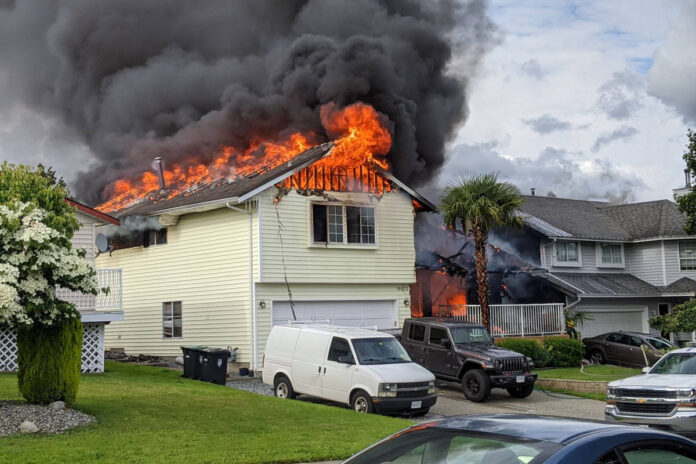Owning your own home can be an exciting prospect, but it’s important to take into account all of the factors that can affect the price you need to pay to fulfill this dream. For example, if your home has been damaged by fire or some other disaster, you may be wondering whether or not you’ll still be able to get a mortgage on a fire-damaged property after repairs have been made.
Fortunately, the answer to this question is yes — in fact, you may even be able to get financing at the same interest rate that was available before your home sustained damage! Here’s how!
If you own your home
First and foremost, the lender will want to see proof that the damage has been repaired. This means that you’ll need to provide documentation from a licensed contractor showing the work that was done.
Secondly, the lender will most likely require an appraisal of the property to ensure that the repairs have been made correctly and that the home’s value hasn’t decreased due to the fire damage.
Finally, your interest rate may be higher than average due to the perceived risk of lending money for a home that has been damaged by fire.
If you are buying a property
The first thing you need to do is find out if the property is insured. If it is, the insurance company will likely have a list of approved contractors that they recommend you use to repair the damage.
You will also need to get a contractor’s estimate of the repairs. Once you have this information, you can start shopping for a mortgage.
Here are some questions to ask your lender:
-How much can I borrow on my income and assets?
-What’s the difference between regular and jumbo mortgages?
-What rate should I expect to pay on my mortgage? What are my alternatives if I can’t afford these rates or terms? Your lender may be able to offer you a different type of loan with different rates and terms.
For example, fire damage may make your home harder to sell. In that case, lenders might allow a higher percentage of the purchase price as a down payment to keep their lending exposure manageable. Or there might be programs available where the buyer makes no money down at all! These programs would limit the amount of risk the lender takes, lowering their interest rate–sometimes significantly!
If you live in a rental
Many people are forced to move after a fire, and often they have to start from scratch. If you’re one of the lucky ones with insurance and can afford to rebuild, you may be wondering if you can get a mortgage on a fire-damaged property. The answer is yes, but there are a few things you need to know first. Your lender will want to know that your house has been fully repaired before issuing you with a new loan.
They’ll also want to see that you were able to keep up with your previous payments while living in the rental property. Be sure that your insurance company has sent over all necessary paperwork so that everything can go smoothly for you when it comes time for the closing!
Should I buy or rent?
If you’re looking to buy a home, there are a few things you’ll need to consider before making your decision. One of the most significant factors is whether you can afford the upfront costs associated with purchasing a home.
For many people, this means saving for a down payment and getting a mortgage. But what if your dream home has been damaged by fire? Can you still get a mortgage on a fire-damaged property? The answer depends on several factors, including the damage done to the property and the repair cost.
Lenders typically require homes with clean title or insurance coverage to obtain a mortgage loan. It’s also important to keep in mind that depending on how much damage was done, and you may not be able to take out a new mortgage loan at all without taking out additional money from your savings account or selling off other assets.
Renting a property after fire damage
If you’re looking to rent a property that has been damaged by fire, there are a few things you should keep in mind.
- First, the property will likely need to be repaired before it is habitable again. This means you’ll need to find another place to stay while the repairs are being made.
- Second, the cost of repairs will likely be high, so you’ll need to be prepared to pay more than usual for rent.
- Third, your insurance may not cover the cost of damages, so you may have to pay out of pocket.
- Fourth, the landlord may require you to sign a waiver releasing them from liability in case of another fire.
- Fifth, the property may not be up to code and could pose a safety hazard. Make sure to ask questions about the property’s safety, such as whether there are any gas leaks or if smoke detectors were installed after the fire.
- Sixth, even if you can get a mortgage on a fire-damaged property, interest rates will likely be higher than those on an entire house.
- Seventh, while renting can seem attractive because of its affordability, remember that owning is always better in the long run because it offers long-term stability and builds equity through monthly payments.
- Eighth, you may also consider applying for rental assistance programs (which offer subsidies and/or vouchers) that help low-income households afford market-rate housing.
- Ninth, don’t forget to inquire about utilities—utilities might be included in the rent, but you’ll still need to factor those costs into your budget.
- Finally, check with local charities for housing options available in your area.
What happens to my mortgage if I can’t use my property?
If you have a mortgage on your property, you will still be responsible for making payments on the loan. However, you may be able to get a forbearance or modification on your loan if you can’t make payments. You should contact your lender as soon as possible to discuss your options. In some cases, the lender may require you to purchase hazard insurance before they will modify your loan.
One of the ways that lenders may give a borrower relief is by deferring their monthly payments for up to six months. The first month’s payment is delayed until your home has been repaired and returned to its condition before the fire. The second month’s payment is deferred until one year after repairs are completed.
Should I stay or should I go
If you’re thinking about staying in your home after a fire, you should consider a few things before making your decision. If your home is structurally sound and the damage isn’t too severe, it may be worth fixing up. However, if the damage is extensive, it may be best to start fresh elsewhere.
Before making your decision, you must speak with your insurance company and mortgage lender to see what options are available to you. It’s also a good idea to get a professional assessment of the damage to see if repairs are feasible.
If you decide to stay and repair your home, be prepared for the process to take some time. Finding contractors who are available and willing to work on fire-damaged properties cannot be easy.
Conclusion
Getting a mortgage on a fire-damaged property is possible, but it won’t be easy. The lender will want to see a detailed repair plan and proof that the repairs have been made. They will also likely require a higher down payment and interest rate. If you’re planning on buying a fire-damaged property, make sure you do your research and are prepared for a lengthy and complicated process.


